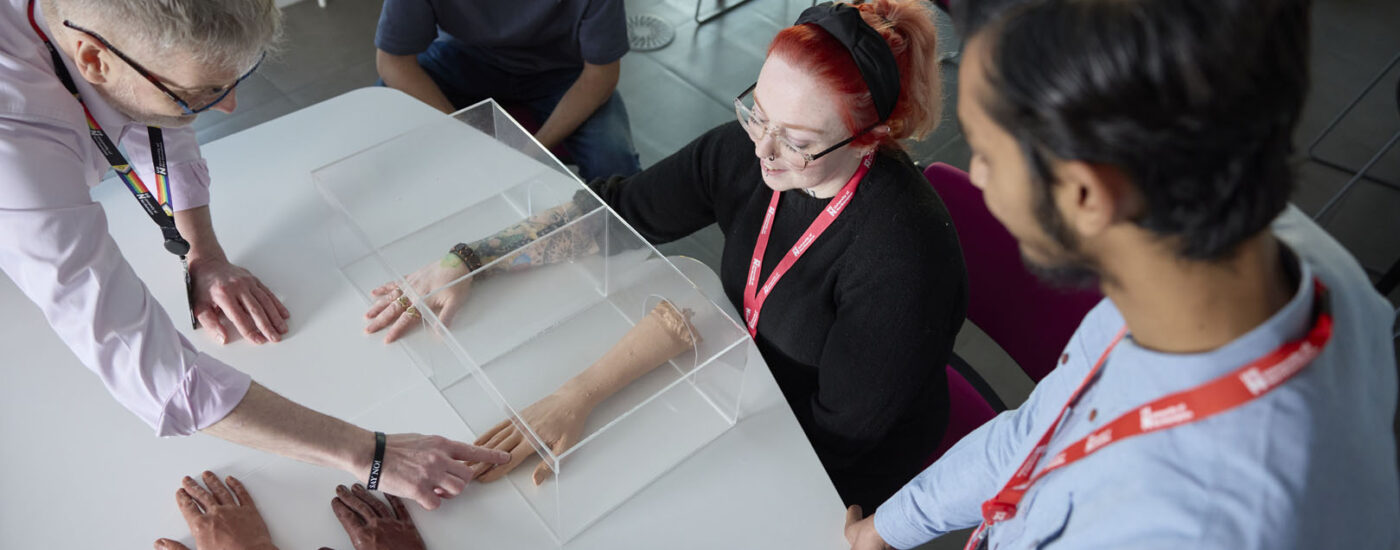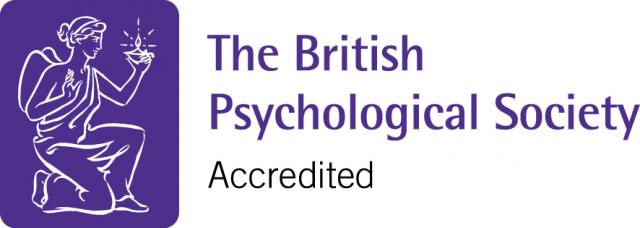Aman Asif-Malik
Senior Lecturer in Forensic Psychology
To ensure we guide you through the correct application process, we just need you to answer a few quick questions.
Already applied?
Log in to view updates.
This course offers two separate application routes, depending on whether the application is submitted by the student or an international agent.
Please select your desired length of study from the available options.
This course includes a placement option. Please indicate whether you’d like to apply with or without a placement.
Please select where you would like to study.
All the available academic years are displayed below.
All the available start months for the selected academic year are listed below.
Please review the information below carefully before continuing.
If you need to make any changes, click the < Back button to return to the previous step.

UCAS Code
3 year: C816
4 year: C817
Duration
Full Time: 3 Years
Foundation: 4 Years
Part Time: 4 - 6 Years
BBC at A Level
DMM at BTEC
Full Time: £9,535
Part Time: £1,585 (per 20 credits)
Integrated Foundation Year: £9,535
Updated 09/12/2025
Updated 09/12/2025
The BSc Forensic Psychology course offers a unique opportunity to explore how psychological principles inform forensic practice. You’ll gain hands-on experience conducting scientific research on forensic topics while also developing core skills in developmental, cognitive, social, and biological psychology.
Throughout our Forensic Psychology degree, you’ll have the flexibility to choose from a diverse range of modules. This selection will enable you to explore various aspects of criminal behaviour, from pathways into crime and addiction, crime scene behaviours to advanced criminal profiling techniques. Additionally, you will delve into key areas such as forensic risk assessment, intervention strategies, and rehabilitation, gaining a comprehensive understanding of how to assess, manage, and support individuals within forensic settings.
For overall student positivity in the National Student Survey 2025.
NSS Calculations are based on Office for Students (OfS) data from the average positivity score.
This programme is accredited by the British Psychological Society (BPS), serving as the first step towards becoming a Chartered Psychologist. Upon completing your degree with at least a 2:2 classification, you will be eligible for Graduate Basis for Chartered Membership (GBC) with the BPS.
Gaining GBC status offers numerous advantages for your future career in psychology. Additionally, our accredited psychology undergraduate degree allows you to progress into postgraduate study in various areas of psychology – and beyond – without the need for a further Psychology Conversion course to obtain GBC status.

Typical requirements for this Forensic Psychology Course are:
We welcome applications from students with a mix of A levels and BTEC/Cambridge Technical qualifications.
In addition, you will be expected to have achieved:
For information on how to apply to study with us, please see our How to Apply page.
The University of Northampton now offers on a range of our courses an alternative route to study; the integrated foundation year (IFY). The standard entry requirements for the Integrated Foundation Year are:
We welcome applications from students with a mix of A levels and BTEC/Cambridge Technical qualifications.
All International and EU students applying for a course with us must meet the following minimum English language requirements:
For information regarding English language requirements at the University, please see our IELTS page.
For information on how to apply to study with us as an International student, please see our How to Apply for International Study page.
The Forensic Psychology course offers a comprehensive foundation for those aspiring to build a career in psychology, particularly in forensic settings. Accredited by the British Psychological Society (BPS), the programme provides eligibility for the Graduate Basis for Chartered (GBC) Membership – an essential starting point for your career as a professional psychologist. GBC membership offers several benefits, including access to academic journals, professional conferences, and networking events.
In addition, you’ll have the opportunity to attend talks with external experts within forensic settings, spanning both research and practice across various career paths. These sessions will offer valuable insights into the field, helping you make informed decisions about your future aspirations in forensic psychology.
In year 1, you’ll be introduced to key themes, theories, and foundational research in the field. You’ll explore critical topics such as offence types, ethical decision-making, and the role of forensic psychologists. The curriculum also covers essential areas like profiling, prison systems, behavioural management, and mental health in the justice system, giving you a well-rounded understanding of forensic psychology. With dedicated assignment support and practical application, you’ll be fully prepared to advance to year 2.
This module introduces students to applications of psychological knowledge in the real worldIt aims to help students acquire knowledge and understanding of theory and research relating to key topics in Applied Psychology and to develop the critical skills necessary to the evaluation of different approaches within Applied Psychology.
The purpose of this module is to provide students with a broad understanding of psychology by introducing four core areas (social, developmental, cognitive and biological psychology)Students will develop critical thinking and evaluative skills of psychological material by focusing on theory, empirical research and real-life examples.
The purpose of this module is to promote reflective critical thinking and evaluation skills using a wide variety of psychological materials, and develop student confidence in evaluating and conducting Psychological research.
The purpose of this module is to provide a fundamental introduction to research design, analysis and interpretation in psychologyStudents need to understand common methods of investigation, in order to appreciate the source and context of theories and research findings encountered in specific subject areas studied in other psychology modules.
This module aims to develop student s intra-and-inter-personal skills through exploring Positive Psychology theory and application and increasing self-awarenessThroughout the module, you will gain understanding for how these are experienced, how we relate to them, and what psychology has begun to understand about them.
Foundations of Forensic Psychology will introduce students to key topics, theories, and historical debates that underpin Forensic PsychologyThis module will enable students to examine various aspects of the justice system, from offending behaviour to police investigations, to the role of the courts.
Please note the modules shown here relate to the academic year 25/26. The modules relating to the academic year 26/27 will be available from June 2026.
At the University of Northampton, everything we do, from funded trips to paid internships, is to give you everything you need to make a difference when you leave.
If you join our full-time Forensic Psychology course, you will receive a laptop when your course begins*. The laptops are built to a bespoke custom specification ideal for use in the seminar room, collaborative group work or studying at home.
Whatever your ambitions, we’re here to help you achieve them. We’ll support you to identify the skills you’re learning during your course, find your strengths and secure practical experience so that when it comes to applying for jobs or further study you’ll feel confident in standing out from the crowd. We’ve created the Northampton Employment Promise because we are so confident that if you focus on your studies and complete one of our awards you’ll be highly employable by the time you graduate. Putting you in a great position to secure employment or continue your studies.
To check out the full list of perks, visit our Student Perks page or dedicated International Perks page.
* UK fee payers only (see Terms and Conditions for further details)
The Integrated Foundation Year (IFY) offers a new and exciting route into studying for a degree, attracting ambitious and driven students who are willing to learn and advance.
If you have non-standard qualifications or do not quite meet the admissions requirements we can offer you a fantastic opportunity to study a four year programme which includes an Integrated Foundation Year. The Integrated Foundation Year will help you develop the theoretical/practical and academic skills you need, in order to successfully progress to the full award.
Our four-year courses will enable you to successfully follow the degree pathway of your choice while gaining essential study skills. The foundation year of your chosen degree will be studied on a full-time basis and is aimed at supporting the transition to higher education. Years two, three and four are then studied as a standard degree programme.
The main employer of forensic psychologists is HM Prison Service. However, there are several other opportunities for employment such as:
The mode of teaching for this BSc Forensic Psychology is designed to provide as much face-to-face contact for students as possible. However, we also provide flexibility for those students who are unable to work on campus for travel, personal or other reasons.
You will be given the opportunity to apply for research assistant roles with members of the programme team. This involves collaborations with researchers in Universities across the UK, as well as international collaborations.
A career in forensic psychology can lead to a well -paid salary with strong career progressions. The amount of money earned will differ depending on area of specialisation or institution you are employed by.
However, the starting salary for a forensic psychology graduate could be as high as £46,000 per year if you are employed within the NHS.
2025/26 Tuition Fees
Fees quoted relate to study in the Academic Year 2025/26 only and may be subject to inflationary increases in future years. UON will adjust UK fees annually in line with Government Policy.
For information on the scholarships available to you, please see our scholarships page.
For more information about possible funding options, please visit our Fees and Funding pages.
Fees quoted relate to study in the Academic Year 24/25 only. They may be subject to inflationary increases in future years.
Once you graduate with a forensic psychology undergraduate degree, you will be eligible for graduate membership of the British Psychological Society (BPS). Graduates can apply directly for postgraduate study to work towards becoming professional forensic psychologists. Graduate employability in forensic psychology is very good, graduates can provide vital services in the legal and criminal justice system of a specific area. They can also work in universities, research centres, hospitals, medical examiners’ offices, forensic laboratories, police departments or as independent consultants.
Successful completion of our forensic psychology course can lead onto further studies if required:
Across our forensic psychology programme, we facilitate independent self-study by providing access to library resources, the opportunity to sign up to internal and external workshops as well as skills training events, and the opportunity to apply for small grants to cover academic activities such as conference entry.